Inspired by science and technology
we develop modern tools for POCT medical diagnosticsABOUT US
Biosens Labs is an innovative biotechnology company working on breakthrough solutions enabling fast mobile diagnostics in non-laboratory conditions and supporting pharmaceutical companies in a drug discovery process
Our vision is to provide different institutions (GP offices, communication hubs, workplaces) and patients with simple yet powerful genetic and immuno assays working in handheld POCT device unit assisted by smartphone applications.
We develop novel solution-based no-wash one-pot genetic and immuno assays for use in POCT as well as for diagnostic or pharmaceutical laboratory settings. The assays testing infectious and civilization diseases by probing genetic material and biochemical markers as well as methods testing biomolecular interactions. We are also working on portable and inexpensive dual POCT analyzer capable of reading both genetic and immunoassays results.
Our mission is to promote and provide portable medical diagnostics for quick and flexible response in epidemic conditions but also to help fighting civilization diseases. Based on our assay development expertise, we also support drug discovery and preclinical drug development.
TEAM
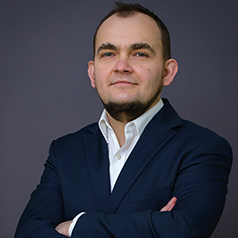

Łukasz Krzemiński
Chief Scientific Officer



Rafał Kozieł
Head of Biology
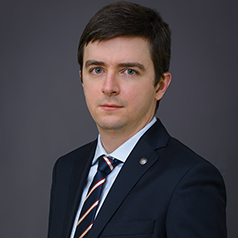


Gleb Andryianau
Principal Technology Consultant



Natalia Półtorak
Business Development Manager



Michał Kopciał
Scientist II, Project Leader
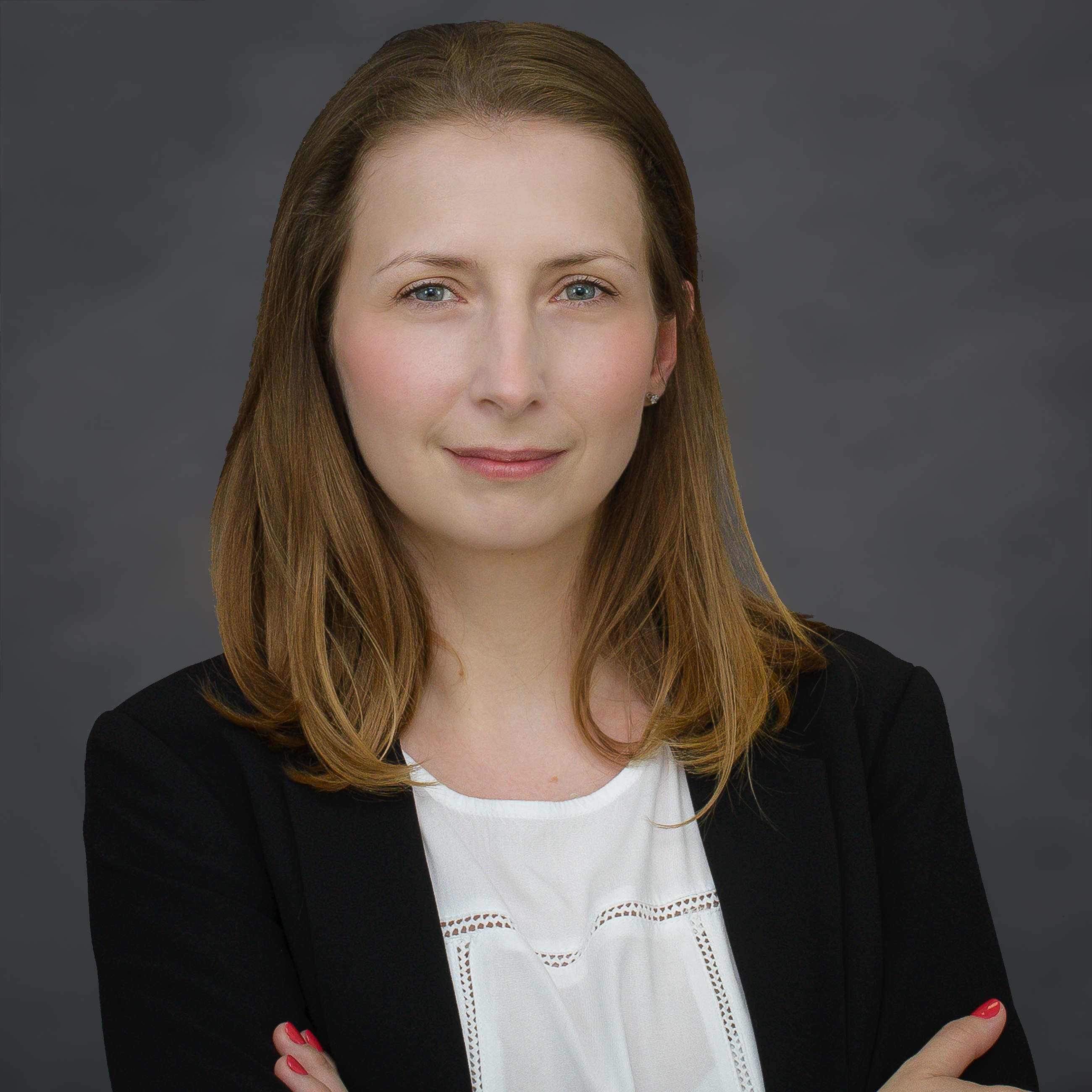


Karolina Kocot
Chief Operating Officer
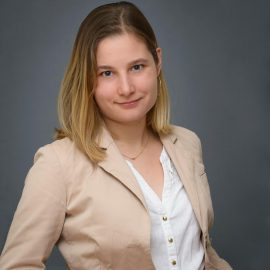

Anna Szulc Kapuścińska
Researcher
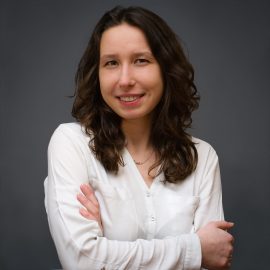

Grażyna Wasiak
Associate Researcher
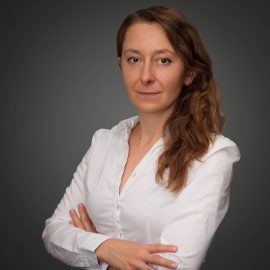

Marzena Krzek
Senior Scientist, Project Leader


Jakub Kowalski
Associate Researcher
POCT
POCT (Point-Of-Care-Testing) is defined as medical diagnostic testing at the time and place of patient care. The main task of POCT is to shorten the waiting time for the result, provide quick and accurate tests to paramedical staff or patients for home self-monitoring of many diseases and conditions.
POCT diagnostics is based on several biological methods and technical tools integrated into a variety of tests, ranging from single-use disposable tests (e.g., rapid immunochromatographic antigen tests, popular pregnancy tests and others), through small handheld devices – pocket-size analyzers (e.g., blood glucose meter – glucose analyzer/ monitor), ending with larger bench-top but transportable devices connected to electrical sockets (e.g., PCR based on single-use cartridges).
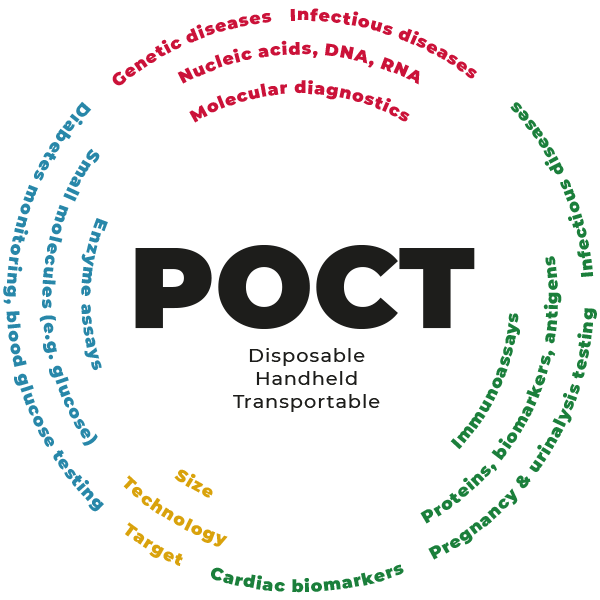

General practitioners (GPs) or physicians specifically want POCTs to help them diagnose acute conditions, such as virus or bacteria pathogen infections, human inflammation biomarkers, acute cardiac disease biomarkers, blood clotting biomarkers, but also chronic and genetic diseases providing POCT tests are accurate
TECHNOLOGY
At BioSens Labs (BSL) we take novel approach to genetic and immuno assay tests. Generally, immunotesting in laboratory requires time-consuming multiple-wash procedures (e.g., heterogeneous ELISA assay) performed by qualified personnel followed by signal readout by relatively simple optical devices. While laboratory genetic testing based on traditional PCR reaction requires qualified personnel and bulky thermal cycler instrument controlling precise temperature changes during reaction.
At BSL we develop novel one-pot no-wash genetic and immuno assays for readout by everyone in simple optical device in non-laboratory settings. The homogeneous solution-based assays with novel simplified detection systems for use in POCT devices but also intended as stand-alone assays for diagnostic laboratories or pharmaceutical companies. This includes molecular diagnostics testing (DNA or RNA detection) achieved through use of isothermal PCR reaction run at constant temperature and immunochemical testing (detection of biomarkers or antigens) centered on homogeneous bead-based assays using various nanomaterials. In parallel to our efforts on POCT assays development we are also working on portable and inexpensive dual POCT optical analyzer capable of reading resulted signals from our genetic and immuno assays.
CONTRACT RESEARCH
BSL molecular drug discovery services
BSL offers molecular drug discovery services including medium-throughput screening and detailed drug-target interaction studies. This includes hit finding through 1 or 2 point-screening and performing structure activity relationships (SAR) through IC50 activity tests, as well as determination of equilibrium (KD, KI), thermodynamic (∆G, ∆H, ∆S) and kinetic parameters (kon, koff) for selected drug-target interactions.
We perform spectroscopic enzyme assays using fluorogenic and chromogenic substrates as well as various chemical and enzymatic systems quantifying substrate-to-product conversion. In terms of drug screening, besides enzymatic tests, we also use homogenous bead-based AlphaScreen assay suitable for the study of a wide spectrum of therapeutic targets, e.g., protein-protein interactions. In addition to screening with indirect assays (3 molecular partners), we also perform direct biophysical assays (2 molecular partners) providing unique insight into drug-target interactions in terms of actual binding affinity, thermodynamics, and kinetics. This includes MicroScale Thermophoresis (MST) and BioLayer Interferometry (BLI) biophysical techniques.
Assay development and conduct of biochemical and biophysical tests
- Therapeutic targets: enzymes, protein-protein interactions (PPI), protein-sugar, protein-small molecule compound, protein-DNA/RNA, DNA, RNA
- AlphaScreen – Amplified Luminescent Proximity Homogenous Assay Screen; screening and IC50 measurements of competitive inhibitors (microplate assays)
- Biological Layer Interferometry (BLI) – a technology for measuring biomolecular interactions on the surface; measurements of KD affinity, and kinetic constants kon, koff (single tests)
- MicroScale Thermophoresis (MST) – a technology for measuring biomolecular interactions in the solution; measurements of KD affinity, and thermodynamic constants ∆G, ∆H and ∆S (single tests)
- Enzymatic assays based on absorption, fluorescence, luminescence, fluorescence, FRET readouts; screening and IC50, Ki, measurements of inhibitors (microplate assays)
- Enzymatic kinetics, determination of enzyme inhibition models and reversibility of inhibitors
- Bioconjugation chemistry, conjugation of proteins, enzymes or antibodies with labels or drugs (labelling, purification and activity conformation of labelled molecules)
Functional cell-based assays
BiosensLabs offers a wide spectrum of functional cell-based assays in drug discovery, including cytotoxicity, proliferation, metabolic or bioenergetic assays. Our scientists are also keen on helping you to plan, design as well as perform experiments aiming for the understanding of drug candidate mechanism of action (MoA) on both intra- and extra-cellular level. Accordingly, we are able to prepare primary cultures from donor tissues.
To reach these goals, we offer flow cytometry-, protein complementation-, reporter genes- (fluorometric and luminescent techniques), fluorescence microscopy- and Loop-mediated Isothermal Amplification (LAMP) -based assays.
- Mechanisms of drug induced cytotoxicity (necrosis, apoptosis, senescence, autophagy)
- Cell cycle and proliferation rate profiling
- Determination of cell viability, activity of intracellular signalling pathways (i.e. p53, NF-kB, MAPK activity), compartment-specific calcium and free-radicals signalling, ADME, oxidative stress, Histone Deacetylase or Methyltransferase activities
- Quantification of cellular energy metabolism: ATP, NAD/NADH, NADP/NADPH, glicerol, triglyceride, cholesterol or cholesterol esters, glucose, glutamate, gluatamine, glutathione, lactate or glucose uptake
- Profiling of selected protein and mRNA levels
- Investigation of biological activity, biochemical mechanisms, off-target interactions of drug candidates
- Effect of drug compounds on multiple cell phenotypes
- Effect of drug compounds on protein-protein interactions
- Effects of drug compounds on mitochondrial function: mitochondrial energy metabolism using high resolution respirometry, cellular respiration based determination of oxidative phosphorylation and glycolysis activities, measurements of mitochondrial membrane potential, mitochondrial ROS levels, activity of the respiratory chain complexes, mitochondrial DNA genetics and intra-mitochondrial calcium levels. Generation of mitochondrial DNA deprived cells (Rho 0 cells)
- Isolation, cultivation, characterisation and expansion of primary cultures from donor tissues
Preclinical studies in animal models
At Biosens Labs, we take pride in our expertise in offering a range of PK/PD services specifically designed to support your drug development programs. With a focus on precision and innovation, we are your trusted partner in optimizing the pharmacokinetics and pharmacodynamics of your experimental compounds.
What you can expect?
In Vivo Excellence: Our team is skilled in conducting in vivo studies in mice and rats, utilizing the most advanced techniques and technologies.
Dosing Precision: We offer precise dosing and administration methods, including various routes such as oral, intravenous, intraperitoneal, and subcutaneous, tailored to your study needs.
Bioanalytical analysis: Our state-of-the-art bioanalytical methods ensure accurate quantification of drug concentrations in various biological samples.
Pharmacokinetic Insights: We provide in-depth pharmacokinetic assessments, delving into absorption, distribution, metabolism, and elimination (ADME) properties in rodent models.
Pharmacodynamic Insights: Our team excels in evaluating drug effects, dose-response relationships, and time-course analyses, uncovering critical insights into your compound’s mechanisms of action.
Dose Optimization: Trust us to assist in dose selection and optimization, ensuring efficacy and safety based on PK/PD data.
Metabolite Profiling: Our collaborating experts identify and quantify drug metabolites, revealing their activities within rodents.
Data reporting: We provide comprehensive data analysis and interpretation, including PK/PD modeling and clear, concise reporting of study findings.
Customized Solutions: Our commitment to your success means tailoring study designs to precisely meet the unique needs of your drug development program.
Timely Deliveries: We are committed to delivering study results within agreed-upon timelines, supporting your efficient drug development efforts. Notice that before experiment start Local Ethic Committee permission is needed.
At Biosens Labs our expertise is your advantage. Contact us today to learn how we can tailor our PK/PD services to drive success in your drug development endeavors. Your path to effective and safe drug candidates begins here.
Pre-clinical evaluation of drug therapeutic efficacy in animal models of cancer and respiratory diseases.
Our Expertise
Wide range of models – we offer an array of well-characterized murine tumour models, including syngeneic and xenograft models to mimic various aspects of cancer progression as well as a wide selection of models dedicated for studying anti-inflammatory agents (systemic inflammation, colitis, airway inflammation and allergy, lung fibrosis and others)
Personalized study design – our experts work closely with you to tailor study designs that match your research goals, ensuring the most relevant and informative results
Tumour imaging – utilizing state-of-the-art imaging techniques, we provide accurate and real-time monitoring of tumour growth, response to treatment or metastatic spread.
Immunotherapy evaluation – our models are particularly suitable for assessing the efficacy of immunotherapies, enabling you to explore the interaction between your treatments and the immune system.
Our Services
Efficacy Studies: Evaluate the effectiveness of your therapeutic candidates in inhibiting tumor growth and metastasis or anti-inflammatory activity using our diverse panel of in vivo models.
For a detailed overview of available experimental models, please refer to the following categories:
Syngeneic tumour models: CT26 colorectal carcinoma, Lewis lung carcinoma, B16F10 melanoma, 4T1 mammary carcinoma, E0771 mammary carcinoma, Renca kidney carcinoma and others
Xenograft tumour models: K562 CML, MDA-MB-231 breast carcinoma, U87 glioblastoma, A549 lung carcinoma, PC-3 prostate carcinoma, HCT-116 colorectal carcinoma and others
Inflammatory models: LPS-induced systemic inflammation, HDM-induced allergic asthma, DSS-induced colitis, bleomycin-induced lung fibrosis)
Pharmacokinetics (PK) and Pharmacodynamics (PD): Gain insights into the absorption, distribution, metabolism, and excretion of your compounds in healthy or tumor-bearing mice.
Combination Therapy Studies: Investigate the synergistic effects of combining your candidate therapies with standard treatments or other experimental compounds.
Biomarker Analysis: Assess potential biomarkers associated with treatment response or disease progression.
In vivo models offered:
Model 1: CT26 (Colon Cancer)
Assessing the Anti-tumor Activity in the Mouse CT26 Model of Colorectal Carcinoma
| Cell line, origin | CT26 cell line derived from BALB/c mice |
| Disease model | Colon cancer |
| Model type | Syngeneic, subcutaneous tumours (full immune system maintained) |
| Mouse strain | BALB/c |
| Duration | Rapid tumor growth (7-10 days for palpable tumors, total 20-25 days to humane endpoint) |
| Routs of test item administration | Test items administered via oral gavage, intraperitoneal injection, or intravenous infusion |
| Readouts | Monitoring of body weight fluctuations, assessment of tumor growth kinetics, pseudosurvival analysis (based on time to humane endpoint), and others |
| Reference compounds or combinations | Immune checkpoint inhibitors: Anti-PD-1/PD-L1 antibodies, and others Chemotherapeutics: gemcitabine, oxaliplatin, 5-FU, and others |
| Potential study variations | Exploration of immune-dependent mechanisms of action through cell depletion models, such as CD8+ T lymphocyte depletion. This variation allows for in-depth investigation into the role of specific immune cell subsets in treatment response. |
Model 2: Asthma
Proof of concept studies for early drug development:
Therapeutic efficacy of proprietary compounds in pulmonary inflammation models in vivo
| Allergy inducer | House dust mite (HDM) |
| Disease model | Asthma, allergic pulmonary inflammation |
| Model type | Acute, chronic |
| Mouse strain | C57BL/6 |
| Duration | Acute (multiple schemes, from 10 to 19 days) Chronic (5-7 weeks) |
| Routs of test item administration | Test items administered via oral gavage, intraperitoneal injection, or intravenous infusion |
| Readouts | Monitoring of body weight fluctuations after drug administration, assessment of pulmonary inflammation in bronchoalveolar lavage (BAL) and lungs by flow cytometry (numbers of eosinophils, macrophages, neutrophils, T cells), assessment of relevant pulmonary inflammation markers such as: IL-4, IL-13, total IgE and HDM-specific IgG production |
| Reference compounds or combinations | Dexamethasone (1-10 mg/kg), Montelukast (10-50 mg/kg) |
| Potential study variations | The use of other stimulators of pulmonary inflammation, such as LPS, ovalbumin and others, might be considered |
Model 3: DSS-induced colitis
Assessment of anti-inflammatory efficacy of proprietary drug compounds in the DSS-induced colitis in vivo
| Colitis inducer | Dextran sulphate sodium (DSS) |
| Disease model | Ulcerative colitis, inflammatory bowel disease (IBD) |
| Model type | Acute |
| Mouse strain | C57BL/6 (most commonly used, moderate susceptibility to DSS) BALB/c (less frequently used, less susceptible to DSS) |
| Duration | Acute (10 days) or custom study design |
| Routs of test item administration | Test items administered via oral gavage, intraperitoneal injection, or intravenous infusion |
| Readouts | Clinical scores – observations on weight loss, stool consistency, and the presence of blood in the stool to compute the disease activity index (DAI) MPO (myeloperoxidase) activity – a marker for neutrophil infiltration into the inflamed colon tissue Cytokine analysis – measurement of pro-inflammatory and anti-inflammatory cytokines such as TNF-α, IFN-γ, IL-6, IL-1β, IL-10, haptoglobin, etc., using ELISA or qPCR in the colon tissue or serum FACS parameters – leukocyte infiltration in the colon tissue or mesenteric lymph nodes, T cell subsets (Th1, Th2, Th17, Tregs), activation markers, cytotoxicity markers (granzyme B, perforin) Histopathological score – examination of colon tissue sections stained with hematoxylin and eosin (H&E) to evaluate the degree of inflammation, ulceration, and tissue damage |
| Reference compounds or combinations | Cyclosporine A (50-100 mg/kg), 5-ASA (2-5% in water supply) |
| Potential study variations | Custom modification of the study scheme and duration |
Models being currently optimized. Not yet in offer.
Model 4: Lung fibrosis
Proof of concept studies for early drug development:
Therapeutic efficacy of proprietary compounds in pulmonary inflammation in vivo
| Inflammation inducer | Bleomycin |
| Disease model | Pulmonary fibrosis |
| Model type | Acute |
| Mouse strain | C57BL/6 |
| Duration | 3 weeks |
| Routs of test item administration | Test items administered via oral gavage, intraperitoneal injection, or intravenous infusion |
| Readouts | The in-life readouts include monitoring of the body weight loss and survival analysis. Collected biological samples can be assessed by histological analysis, hydroxyproline quantification, FACS (alveolar and pro-fibrotic macrophages, neutrophils, T cells, and other immune cell subsets), pro-inflammatory and profibrotic cytokine levels, gene expression analysis (fibrosis-related genes coding collagen, α-SMA and others) |
| Reference compounds or combinations | Nintedanib, pirfenidone, corticosteroids |
| Potential study variations | The study duration can vary depending on the specific research questions and objectives – shorter to study early inflammatory changes or extended to investigate established fibrosis and its resolution phase |
CAREERS
Do you want to work on future diagnostics solutions? We might have a job for you
CONTACT
Biosens Labs Sp. z o. o.
E-mail: biuro@biosenslabs.com
Headquarters: Aleje Jerozolimskie 92 Street, 00-807 Warsaw
Laboratory: Zwirki i Wigury 101 Street, office 115, 226, 228; 02-189 Warsaw
District Court for Warsaw, Warsaw,
XII Commercial Division of the National Court Register,
KRS 0000844102
NIP 7010984680
REGON 386187210
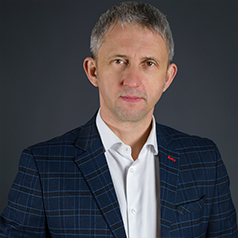

Andrzej Skolmowski
Chief Executive Officer
Economist, graduate of the Institute of Economics of the Faculty of Social Sciences at the Catholic University of Lublin, doctoral studies at the College of Management and Finance of the Warsaw School of Economics and AMP IESE Business School, University of Navarra.
Manager with 25 years of professional experience, including over 20 years in the pharmaceutical and chemical industries. In the years 2000-2008 he was the President of the Management Board in the pharmaceutical industry companies: Cefarm Rzeszów SA, Cefarm Zielona Góra SA and ACP Pharma SA. He managed pharmacy chains and pharmaceutical wholesalers. In 2008-2009 he was also the President of the Management Board of Sanfarm Sp z o.o. – a drug manufacturer. He was responsible, among others, for the transfer of a formal purchasing process to the Company and quality control from Polfa Warszawa SA and for the preparation of the Company to conduct activities in the field of contractual production of drugs and cooperation with foreign responsible entities. Co-creator of the implemented consolidation of the Polish chemical sector in terms of strategy, organization of the capital group, shaping management teams and the functioning of the financial system, which resulted in the establishment of Grupa Azoty.
He specializes in managing changes in the key activity areas of companies and capital groups in the context of creating value for shareholders. He led management teams and substantially participated in the creation and implementation of efficient management models and reporting systems in listed capital groups. He consolidated IT systems with teams of managers and specialists, and participated in the development and implementation of Business Intelligence systems that effectively support management processes. He designed and introduced significant changes in the functioning of business areas to improve the efficiency and profitability of sales, purchases and logistics of medium-sized and very large enterprises such as Grupa Azoty, where in 2009-2016 he was the Vice President for Finance and Trade, and then the Vice President for the Group finances. At that time, he was responsible for key restructuring projects and foreign acquisitions increasing production capacity and share in the international market. He integrated with the Group the finances and operating activities of the acquired enterprises. This contributed to a significant increase in the value of Grupa Azoty. He played one of the key roles in the process of defense against the hostile takeover of the Polish chemical group, which was undertaken in 2012 by the Russian chemical concern. He has extensive theoretical knowledge and experience in managing enterprises of various scales.
Currently, he is also a strategic advisor to the top management and company owners, supports the development of startups, formulates and implements a strategy, manages investment projects, manages change and plans succession.


Łukasz Krzemiński
Chief Scientific Officer
Doctor of Biological Sciences with over 15 years of experience in the field of molecular biophysics, bioelectrochemistry and biosensors, innovative research tools, drug discovery assays, and mechanistic biology studies. A graduate of Biotechnology and Chemistry at the Nicolaus Copernicus University in Torun (PL). In 2012, he obtained his PhD at the University of Leeds (UK) by constructing biosensors and studying the catalytic mechanisms of redox enzymes using innovative protein film voltammetry PFV, impedance spectroscopy EIS, and fluorescence microscopy methods. During his PhD, he completed research internships at Leiden University (NL) and Copenhagen University (DN) concerning metalloproteins and biological electron transport studies. Through 2012-2015 he continued his research as a Postdoctoral Associate at Cornell University (USA), where he studied molecular functions of individual proteins in living cells using single-molecule super resolution fluorescence microscopy PALM and the original modification of the PALM-BiFC method. In 2015-2020, he was associated with the biotechnology company OncoArendi Therapeutics SA (PL), where he led research identifying small molecule inhibitors binding non-enzymatic protein in the YKL-40 program (patent author) and implemented a new drug discovery program based on deubiquitinases (DUBs). Leader of an Exploratory Group aimed at launching drug discovery programs based on new therapeutic targets. Author of numerous scientific publications (14 publications, 459 citations, h-index = 10). Since 2020, the initiator and co-founder of Biosens Labs Ltd.



Rafał Kozieł
Head of Biology
Doctor of Biology with more than 20-years hands-on professional experience in molecular biology, genetic engineering and biochemistry. M.Sc. degree obtained in 2002 at the Wroclaw University of Technology at the Department of Molecular Biology, Biochemistry and Biotechnology. He received Ph.D. degree in Biochemistry in 2007 at the Nencki Institute of Experimental Biology in Warsaw.
His scientific career focused mostly on mutational investigation of the DNA binding proteins, the role of small compounds inhibiting DNA replication in cancer cells metabolism, cell cycle and viability as well as mitochondrial (pato-)physiology and genetics. In 2008-2012 worked as postdoctoral fellow at the Austrian Academy of Sciences, where he investigated molecular mechanisms of genetic regulation and biochemistry of cancerogenesis, cellular senescence, organismal aging and age-related diseases. In 2012-2017 was employed as professor assistant and lecturer at the University of Innsbruck and the leader of the project investigating the role of NADPH oxidases (NOX’s) in cancerogenesis and in cellular senescence. In the meantime he also participated as visiting research scientist in numerous interdisciplinary projects (Medical University of Vienna, Austria; University of Cologne, Germany, Technical University of Darmstadt, Germany) as well as performed project in collaboration with Estée Lauder (Estée Lauder Research Center, Oevel, Belgium). Dr Koziel published 23 original papers (h-index = 14) in the field of intracellular DNA/RNA processing, non-enzymatic proteins and enzymes activity as well as cellular physiology including cellular signalling pathways, energy-, calcium ions- and intracellular free radicals metabolism.
Since 2017 involved in the drug discovery R&D projects at Oncoarendi Therapeutics S.A. in Warsaw, where he investigated the therapeutic potential of small molecule compound YKL-40 protein inhibitors in preventing human glioblastoma progression, contributed to the identification of new therapeutic targets, led the Cellular Biology Group as well as managed the project of deubiquitinase inhibitors as potential anti-cancer drugs. He co-authored patent application regarding small molecule compounds inhibiting chitinase-3-like-protein 1 (YKL-40). From 2020 co-founder at Biosens Labs Ltd.



Gleb Andryianau
Principal Technology Consultant
Gleb Andryianau has graduated in chemical technology (specialization: Technology of Organic Fine Chemicals) at the Cracow University of Technology. Engineering degree (in the field of manufacturing technology of active pharmaceutical ingredients) and M.Sc. degree (in the field of physical/coordination chemistry) have been defended with honors.
After graduation, he continued his research at the Cracow University of Technology, where he was involved in the synthesis and studies of new vitamin B12 derivatives. Later, he started working at Centre of New Technologies, University of Warsaw, where he was focused on the development of the nanoarchitecture enabling the ultimately oriented immobilization of photoelectroactive protein complexes on transparent mineral electrodes. This concept has been described in the grant application that was rated among the top applications in Poland according to experts in the field.
For several years, Gleb was associated with OncoArendi Therapeutics SA (currently Molecure SA), where he was a scientist – medicinal chemist. He participated in numerous projects related to the discovery of chitinase inhibitors with different activity profiles as well as in the discovery of the ligands of the chitinase-like YKL40 protein – as a potential targets for drugs against fibrotic diseases and/or cancer.
Gleb is a co-author of several publications in peer-reviewed scientific journals in the field of physical and medical chemistry, a book chapter, several patent applications and one granted patent.
Gleb is a co-founder of Biosens Labs Ltd., served as the Head of Technology from 2020 to 2022. Currently, he is a Principal Technology Consultant working remotely form California, USA.
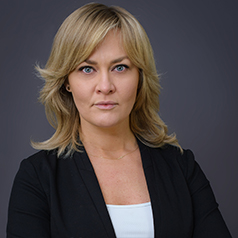

Zofia Pilch
In Vivo Pharmacology Leader
Dr. Zofia Pilch is a very experienced scientist with ten years of expertise in the design, conduct, and supervision of preclinical research using in vitro and in vivo methods. She has an extensive experience in in vivo research techniques, especially regarding the study of the immune system’s functions in mice, using i.a. multicolor flow cytometry and evaluation of the influence of the examined factors on the formation, development of neoplasms.
In 2012, Dr. Zofia Pilch started a PhD project at the Department of Immunology of the Medical University of Warsaw. During her PhD she developed an innovative method of modulating the immune system’s cells, which allowed for “education” of immune cells, thus enhancing their anti-cancer properties. Research skills and knowledge in the molecular characterization of solid tumors and tumor immunology resulted in her involvement in the translational research aspect in the STRATEGMED project in cooperation with Oncoarendi Therapeutics Inc.
In 2018, Dr. Pilch cooperated with Selvita Company, dealing with developing innovative oncological therapies. In 2017-2019, she was a postdoc of the Team-Tech project in cooperation with Cellis Inc., whose aim was to create an innovative drug delivery method to hard-to-reach tumor regions. Since 2019, she is developing her passion for immunotherapy research by working as a postdoc in the STIMUNO project financed by the European Commission (ERC Starting Grant). She is involved in the search for new, so far undescribed cancer cell mechanisms escape from the control of the immune system. In 2019, awarded a Miniatura grant with aim to study the influence of the multiple myeloma microenvironment on the function of the immune cells that infiltrate the tumor. Her scientific work involvement has resulted in co-authorship in many original and reviews scientific articles and participation in many international scientific conferences. She is associated with Biosens Labs since 2020.



Natalia Półtorak
Business Development Manager
Natalia is a Business Development Manager with 15 years of professional experience in project management, marketing, acquisitions, HR, administration in IT, consulting, video games and R&D in corporations and start-ups.
She holds a Master’s degree in Banking and Finance and is also a graduate of Management at Nicolaus Copernicus University in Toruń.
In her career she held the position of PR and Advertising Director at Raiffeisen International Group and was responsible for business development, marketing, PR and communication in the field of bank card transactions (Visa, MasterCard, American Express), e-commerce (3-d Secure) and outsourcing solutions such as card issuing system, acquiring services (ATMs and payment terminals) and fraud management systems.
She also worked as International Project Manager, coordinating activities in the EU, Asia and Africa. She managed an international project with the UN, cooperated with embassies, ministries, authorities in Poland and abroad.
She was Business Development Director in a start-up specialising in opto-mechanical solutions for business.
She is an experienced Manager managing projects funded by the EU and the National Centre for Research and Development (NCBR) in software, optics, opto-mechanics and video games. Currently, she is a manager in companies related to gaming and innovative technologies.



Michał Kopciał
Scientist II, Biophysicist
A graduate from College of Inter-faculty Individual Studies in Mathematics and Natural Sciences (K MISMaP) with Master’s degree in Chemistry on University of Warsaw. He defended his Master Degree Thesis, which focused on synthesis of 7-methylguanosine mono- and diphosphate analogs as a potential pronucleotides with increased cell membrane permeability, in 2014. He continued his scientific education and career at the same unit on a Ph.D. program, during which he designed and synthesized 7-methylguanosine nucleotides’ derivatives as fluorescent molecular probes for studying protein interactions and their spectroscopic and biophysical properties. He’s a coauthor of 4 scientific papers, including Chemical Communications and Molecules. He presented his results as posters and communications during intra- and international conferences. He joined a Biosens Labs company in May 2021.



Karolina Kocot
Chief Operating Officer
Karolina is an AGH University of Science and Technology in Krakow graduate. She specializes in innovations, including research and development projects.
For over 11 years she has been involved in obtaining and settling subsidies for entrepreneurs, especially for their innovative activities and R&D. She is also keen to support innovative and novel start-ups. She has gained her experience working for consulting companies such as Ernst&Young and Accreo, as well as Bloober Team and Thorium Space. To date, she has implemented and managed wide variety of R&D projects in the video games, IT, space industries.
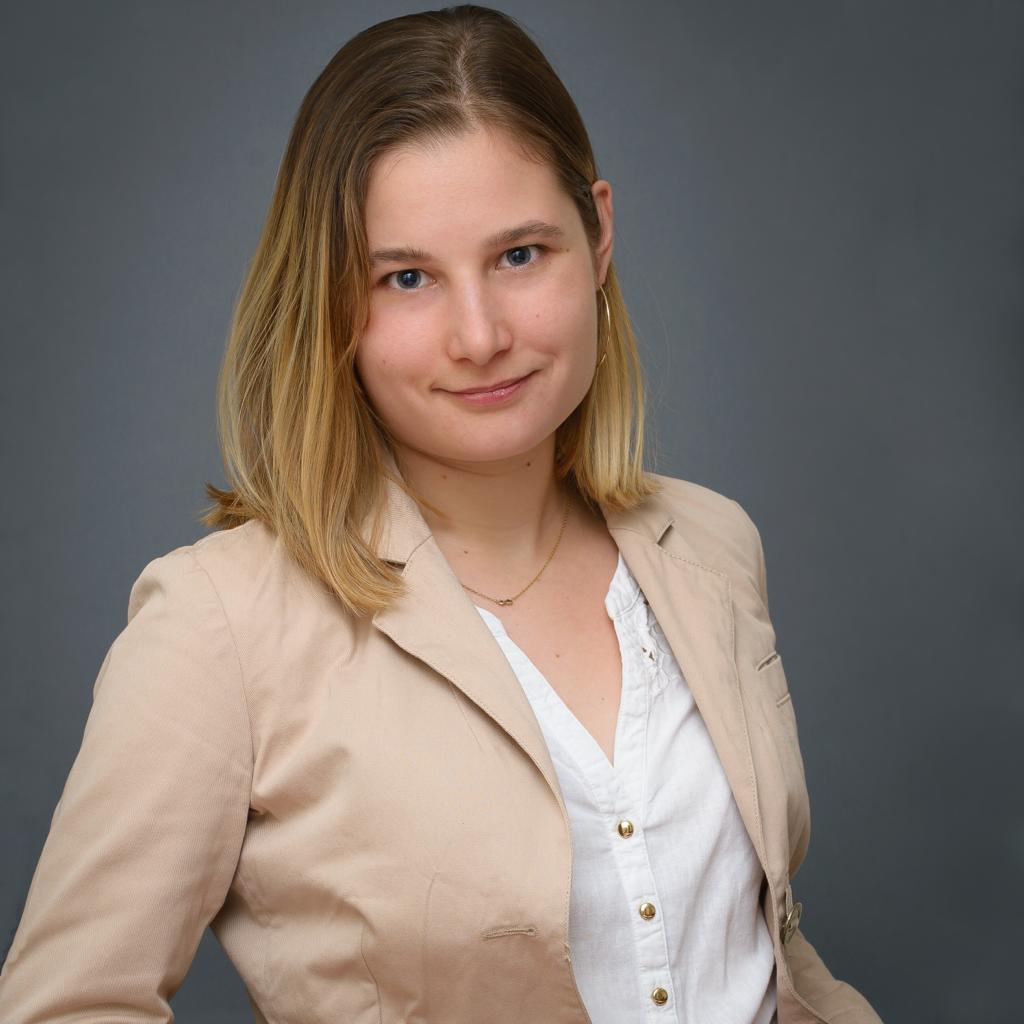

Anna Szulc Kapuścińska
Laboratory Technician
Graduate of the Warsaw University of Technology in the field of Industrial Biotechnology, where she obtained M.Sc. degree in 2019. Anna gained hands-on experience in molecular- as well as microbiology laboratory work at the Institute of Biochemistry and Biophysics PAS and Mérieux NutriSciences (Silliker Poland). Her research focused mainly on lactic acid bacteria and proteins of Pseudomonas aeruginosa. During pandemic engaged in the diagnostic work at the Alab Laboratories, where she analysed clinical material for SARS-CoV-2 virus detection. Anna joined BiosensLabs Ltd team in October, 2021.


Katarzyna Hamara
Senior Scientist – Molecular Biologist
PhD with over 10 years of professional experience in molecular and cancer biology. During her PhD she identified molecular markers of early detection and progression of colorectal cancer. Since 2014, she has worked for biotechnology companies on several drug discovery projects, focused on designing and development of innovative research methods using recombinant proteins and cell cultures. She also participated in screening campaigns leading to the identification of potential drug candidates.
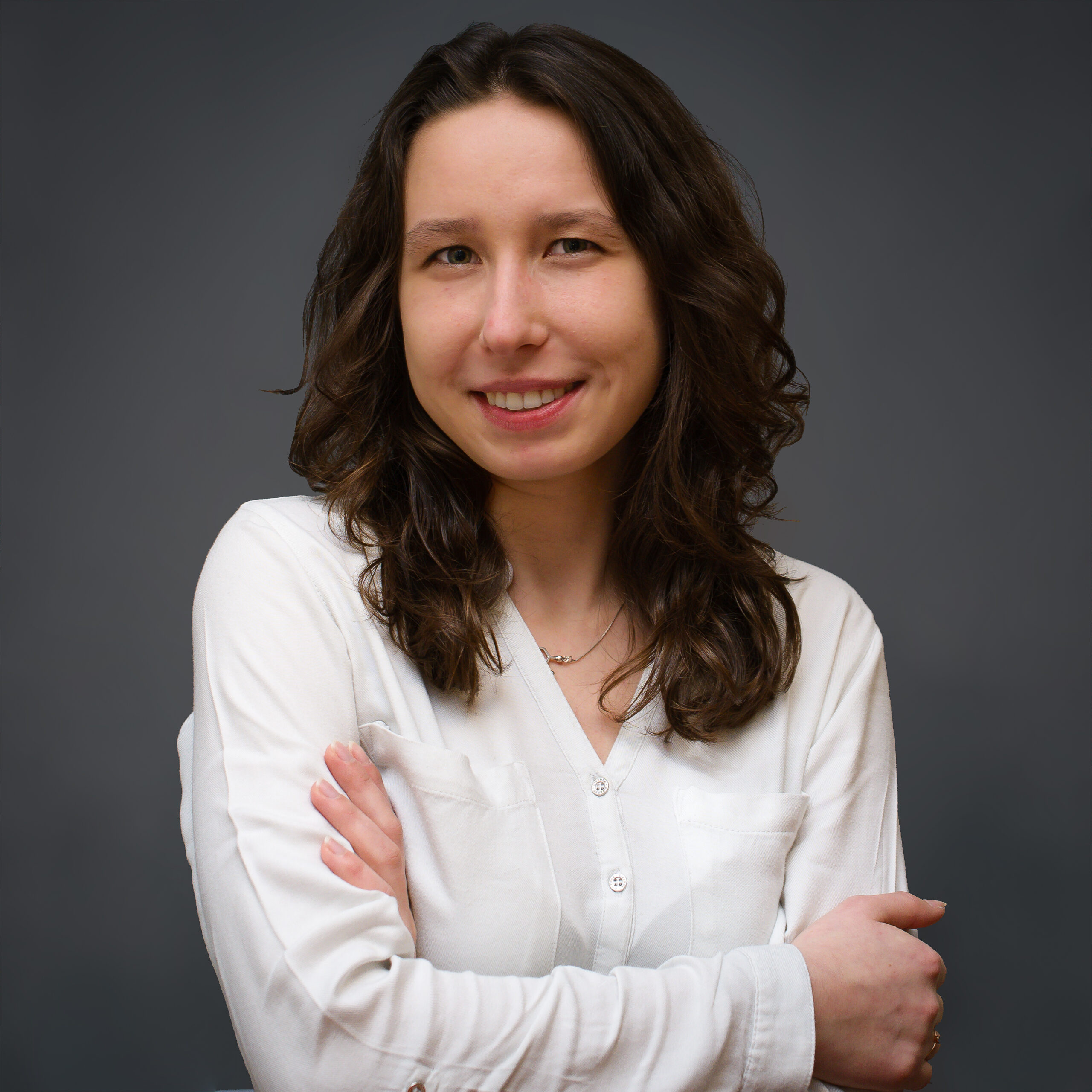

Grażyna Wasiak
Office Assistant – Laboratory Technician
Graduate of the Warsaw University of Technology in the field of Industrial Biotechnology. She obtained a master’s degree in engineering in 2020. As part of her diploma thesis, Grażyna dealt with the construction of shuttle vectors dedicated to lactic acid bacteria. She gained laboratory experience at the Institute of Biochemistry and Biophysics of the Polish Academy of Sciences and BIO-CHIC Sp z o.o. Moreover, Grażyna analyzed clinical material for the presence of SARS-CoV-2 in the genetics laboratory in the diagnostic laboratory of Alab Laboratoria Sp z o. o.
She joined the team of Biosens Labs Sp z o. o. in December 2021.
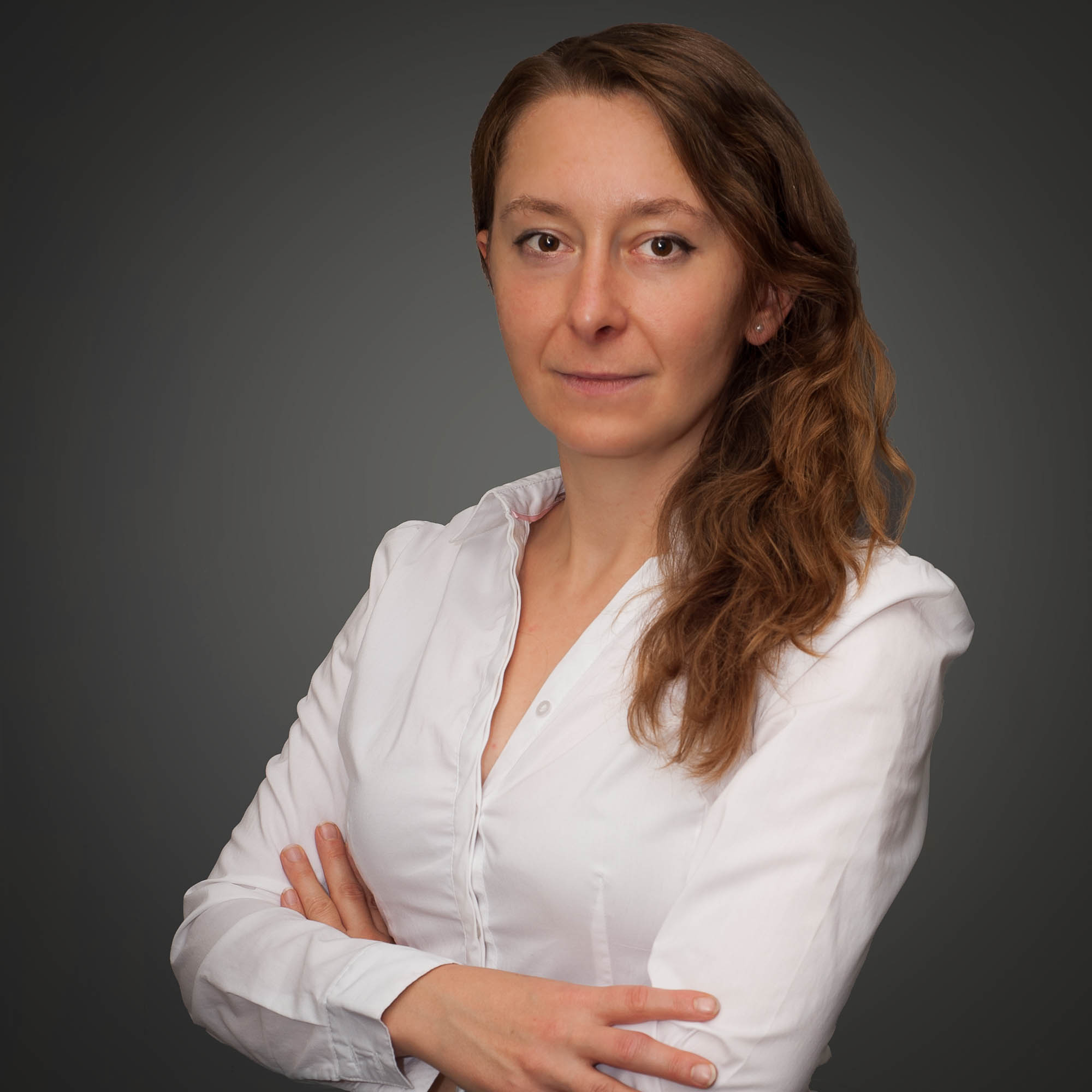

Marzena Krzek
Senior Scientist, Project Leader
Doctor of Life Science with over 11 years of research experience in inter alia biotransformations involving enzymes and whole cells as well as chemical aspects of enzymes immobilization involving surfaces modification. The applicational aspect of these research towards drugs and ksenobiotics enantioselective production in bioelectro-microfluidic devices and towards obtaining platform chemicals.
Another area of her expertise focuses on proteins phase transition, which involves blood clothing events as well as fundamental aspects of proteins self-assembly entangling the mechanical aspects of neurodegenerative diseases (e.g. Alzheimer’s disease)
A graduate of two faculties at the Jagiellonian University, the 5 years-long MSc programme in chemistry and 3-years long BSc programme in Biotechnology. Her MSc thesis focused on synthesis, electro- and spectroscopical characterization of novel metalloporphyrins, and their preliminary testing for photocatalytic properties and photocurrent generation. In 2017 she earned PhD degree at the Groningen University with the thesis focused on redesign of flavoenzymes for obtaining their soluble forms and self-sufficient redox enzymatic fusions and the chemical synthesis of flavoenzyme cofactor analogues to assure capability for covalent immobilization.
Within the years 2017-2020 postdoctoral researcher inter alia at the Vrije University of Brussels working on physical aspects of proteins self-assembly including different gravitational levels. Some of the phenomena were investigated with the microfluidics devices assistance. Besides that, she was contributing to the planning of a space mission for protein crystallization study in the International Space Station. The projects were founded and in close collaboration with the European Space Agency.
Before joining Biosenslabs the Senior Research Specialist at the Łukasiewicz-IChP with the function of Genetic Engineering and Biosynthesis Group leader.


Jakub Kowalski
Associate Researcher
Graduate of the University of Warsaw in the field of Biology, where he obtained a Bachelor’s degree. Currently a student of Radiogenomics at the University of Warsaw. Since 2020 member of the Laboratory of Organic Nanomaterials and Biomolecules, where under the supervision of Wiktor Lewandowski Ph.D. he synthesized chiral nanomaterials, which were further utilized in developing diagnostics tools. He presented the results of his work at intra- and international conferences. During the pandemic, he was a laboratory technician at Cellis Laboratorium, where he analyzed genetic material for SARS-CoV-2 virus detection.
He joined Biosens Labs in June 2022.
